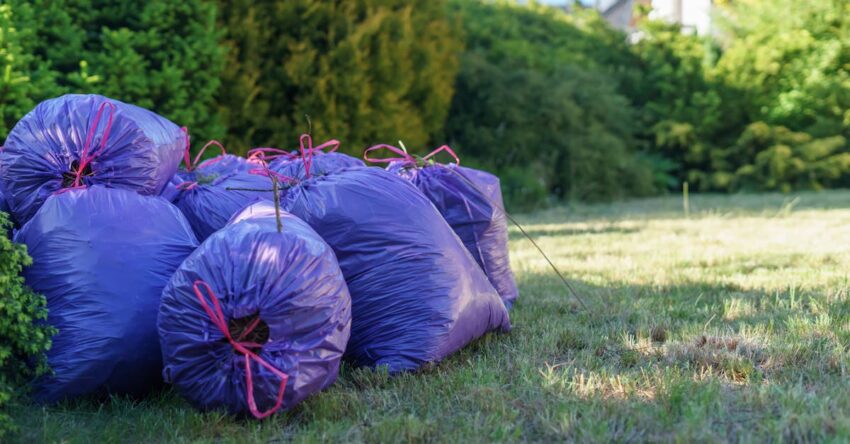Ever wonder why your home waste management efforts seem to fall short despite your best intentions? You’re not alone. Many people struggle with understanding the complexities of managing household waste effectively. It can feel overwhelming, but there’s good news. By exploring common mistakes and learning practical solutions, you can tackle this challenge head-on.
Think about the various household items you use every day, from cell phones and batteries to even hazardous substances like used oil or antifreeze. Each one has a specific disposal method that can make a big difference in reducing waste. By embracing simple, eco-friendly practices like composting, recycling, and proper hazardous waste disposal, you can significantly cut down on waste. Not only will this help you manage waste more effectively, but it will also contribute to a cleaner and more sustainable environment.
Ready to transform your home into a zero waste space? Dive deeper into these practical tips and solutions. Discover how small changes can have a lasting impact on your home and the planet. Let’s make waste management work for you!

Photo provided by Aleksander Dumała on Pexels
Inside the article
Understanding the Failure
When it comes to tackling home waste management issues, you might face several challenges. Sometimes, it fails because you don’t sort waste properly. Other times, it’s because families aren’t aware of how much waste they’re producing. It’s also common to see people not using recycling bins correctly. You might be throwing away items that could easily be recycled or reused. A lack of planning and clutter in your home can make it hard to manage waste properly.
DIY Solutions and Techniques
But don’t worry, you can easily try some DIY waste management tips. Start by creating a simple composting system in your backyard. This allows you to turn food scraps into nutrient-rich soil. You can also recycle paper, plastic, and glass by setting up separate bins in your home. When shopping, focus on purchasing items with minimal packaging. You can even use old jars and containers to store food or household products. The trick is to find creative ways to reduce and manage waste at home.
Implementing Effective Waste Segregation
Now, let’s dive into master waste segregation techniques. First, you need to identify different waste categories like organic, recyclable, and hazardous waste. Once you know what each type of waste is, you can set up separate bins for each category. Label them clearly so everyone in your household knows where to put their waste. Educating your family about the types of waste and how to sort them can go a long way in improving your home’s waste management system.
- Identify waste categories.
- Use separate bins for segregation.
- Educate family about waste types.

Photo provided by Nataliya Vaitkevich on Pexels
Eco-Friendly Disposal Methods
For sustainable waste disposal options, consider practicing eco-friendly methods. Start with composting at home, which reduces the amount of waste you send to landfills. Roasting your compost helps enrich your garden’s soil. Next, incorporate recycling tips like rinsing containers before recycling them to avoid contamination. Strive for a zero-waste home by finding ways to repurpose items instead of throwing them away. These small changes can lead to significant improvements in your waste disposal habits.
- Embrace composting at home.
- Practice recycling tips regularly.
- Adopt zero waste home practices.
Strategies for Waste Reduction
Implementing waste reduction strategies is crucial. Begin by reducing the use of single-use plastics. Switch to reusable bags, bottles, and containers to lessen your plastic waste. Next, be mindful of your consumption by buying only what you need. This can help you avoid unnecessary waste. Another tip is to donate unwanted items instead of discarding them. Sharing with others not only reduces waste but also fosters a sense of community.
Why Eco-Friendly Management Matters
It’s important to understand why eco-friendly waste management matters. When you preserve natural resources, you help protect the planet. Reducing your environmental impact minimizes pollution and supports a healthier ecosystem. Besides, promoting sustainable living encourages others to follow your lead. By making small changes in your lifestyle, you can play a part in ensuring a cleaner and greener world for future generations.
- Preserve natural resources.
- Reduce environmental impact.
- Promote sustainable living.
Move Towards a Sustainable Home
Effective waste management begins with choosing simpler, eco-friendly options. Embracing sustainable practices not only reduces waste but also protects the environment. You gain a cleaner home, save money, and contribute to a healthier planet. These solutions are practical and can easily fit into your daily routine.
To get started, begin small. Implement a waste segregation technique in your kitchen. Separate recyclables from compostable items. Consider starting a compost bin for food scraps. Explore local options for hazardous waste collection to handle items like batteries and used oil responsibly. These steps create a positive impact quickly and make managing waste less overwhelming.
Take action today. Choose one small change to implement in your home. Notice the difference it makes in reducing your waste. Your efforts matter. Start now to create a sustainable future. Together, we can make a big difference by making small changes. You hold the power to transform your home and environment for the better.
